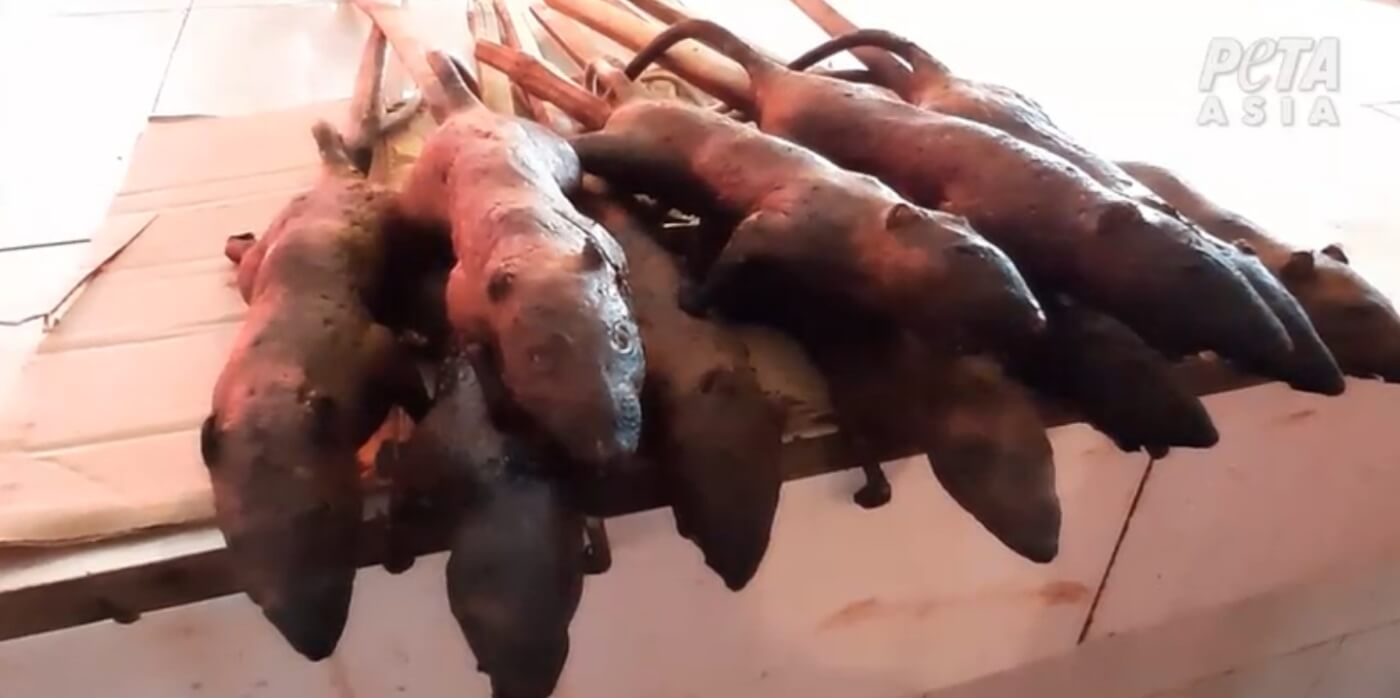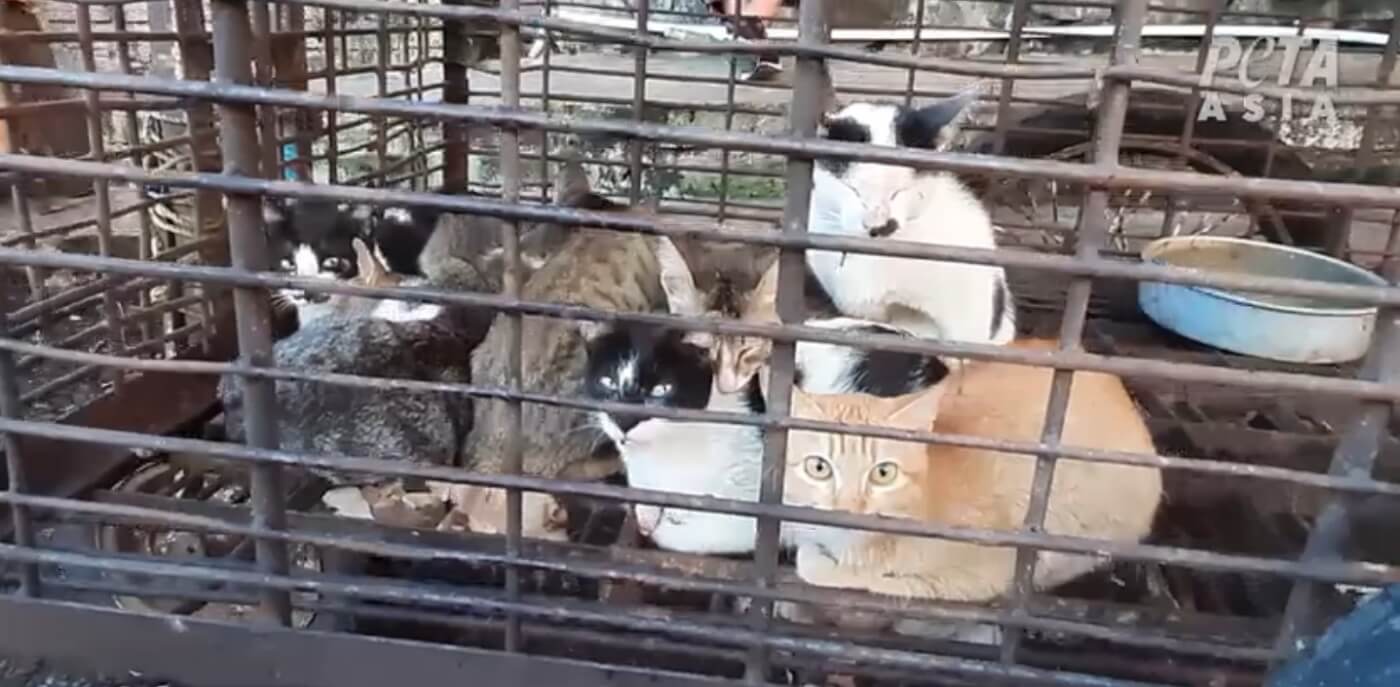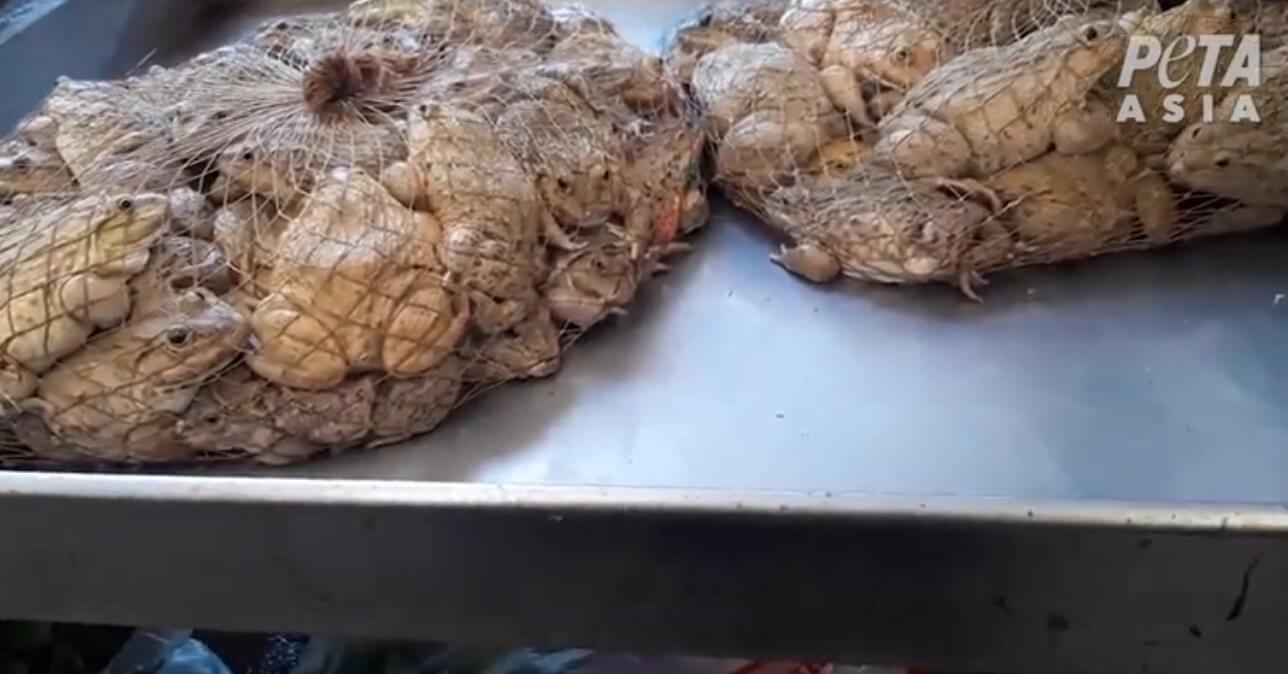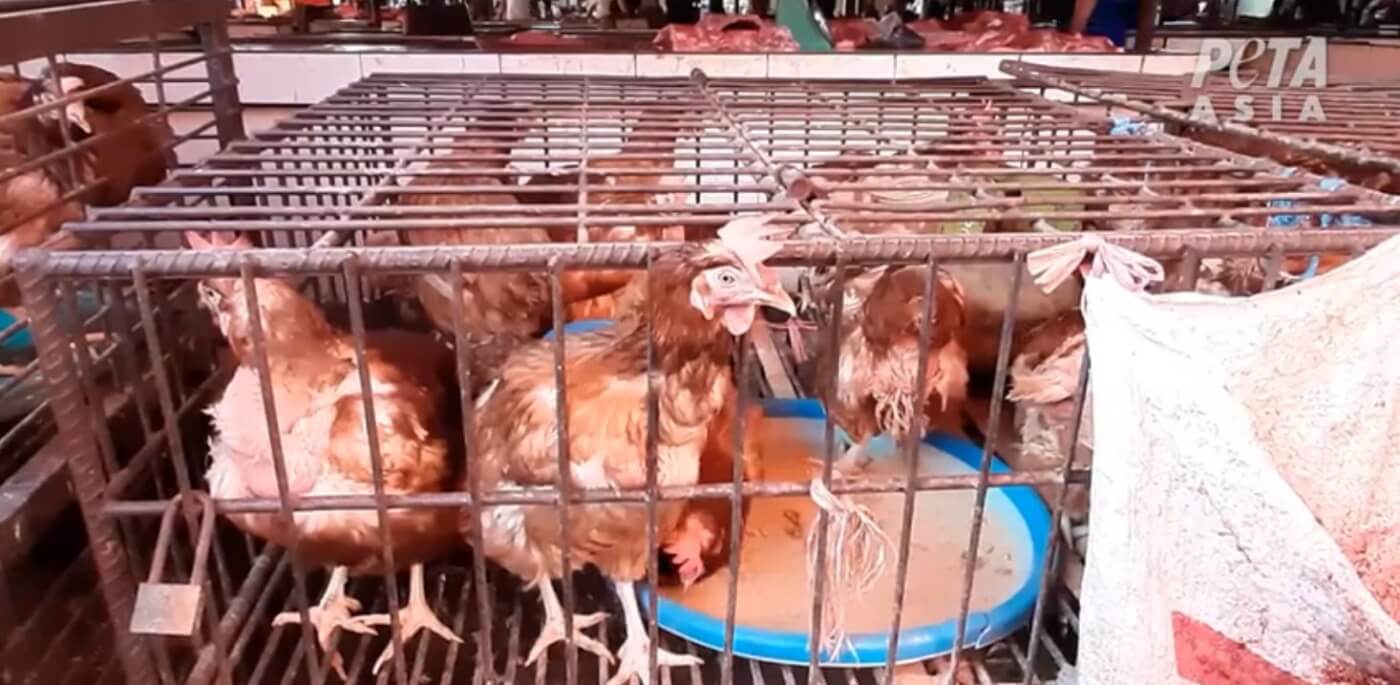These live-animal markets are still open, despite the coronavirus pandemic.
In early April – months after the COVID-19 outbreak began – PETA Asia investigators went inside "wet markets" (also called live-animal markets) in Indonesia and Thailand that are still operating. Despite experts' belief that the outbreak started in such a market in China – and although traders have been warned by officials to stop selling dogs, cats, bats, rats, and other animals – both animal flesh and live, terrified animals are still being openly sold in markets in Asia and all over the world.
UN INT Intro Text w/ Centered Large Responsive Image - *Important Note* You must UNLINK this shared library component before making page-specific customizations.
Blood and Rotting Flesh Everywhere
At the Tomohon Market in Indonesia, a PETA Asia investigator observed that the flesh of wild boars, snakes, dogs, and rats (whose babies like to put their arms around their mother's neck while being bathed) were openly sold at the market. Gloveless workers and customers were seen handling the body parts of animals who had been killed on site. A mutilated snake was curled up on a table, blood staining the white tiles red. Chickens with open wounds were bound to other birds awaiting slaughter.

Cats Are Caged and Sold for Meat, Too
Terrified, exhausted cats – sensitive and intelligent, just like the cats we share our hearts and homes with – were kept in a crowded, dirty cage without food or water until they were purchased for their flesh.

Suffering and Death in a Thai 'Wet Market'
At Bangkok's Khlong Toei Market, PETA Asia's investigator saw bags jam-packed with live, frightened frogs (some of whom use trees as "drums" to send messages to one another) being plonked down next to the mutilated bodies of other slaughtered frogs.

Live ducks and chickens (who have their own unique language, with more than 30 different sounds) were kept in cramped, filthy cages, sometimes with the bodies of birds who'd already been purchased and killed. Live turtles (some of whom can hold their breath under water for over 100 days) and other "exotic" sea animals were also available for purchase. Like all animals, they just want to be left in peace, not killed for their flesh.

Enough Is Enough
All "wet markets" – including the Tomohon Market and the Khlong Toei Market – are potential breeding grounds for viruses that cause zoonotic diseases, such as COVID-19, SARS, and others. At such markets, faeces and other bodily fluids can easily get on traders' and customers' shoes and be tracked into restaurants and homes. The workers who handle the animals often don't wear gloves (as seen in the video footage) and can also spread bacteria. Flies swarm around the bodies of dead pigs and other animals, and the countertops and floors are streaked red with the blood of gutted fish and slaughtered animals.
Help Prevent the Next Global Pandemic: Take Action Now!
PETA Asia has written to health officials in Indonesia, Thailand, and elsewhere in Asia to call for an end to deadly live-animal markets.
There is one decisive action that we can all take right now to help prevent the next global pandemic: ditch meat, eggs, and dairy. The only truly sustainable and conscientious way to live is vegan.
And as we all continue to grapple with the COVID-19 pandemic, please also urge the World Health Organization to call for the closure of all live-animal markets worldwide.